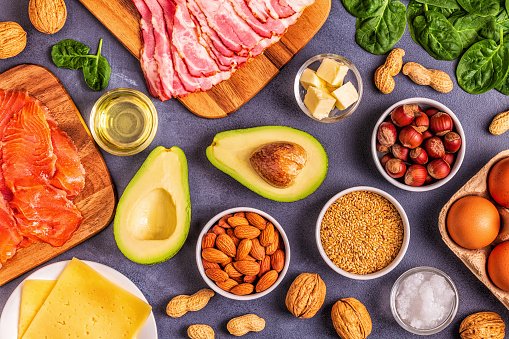
Image source: istockphoto
The keto diet has become one of the most popular methods worldwide among people trying to lose weight and improve their health.
Research shows that keto diets are effective at promoting weight loss. The keto diet may also have neuroprotective effects and help improve cognitive function in people with Alzheimer’s disease, though more research is needed.
Similar to the Atkins diet, Keto is a high-fat, low-carb diet. As a result of this macronutrient composition, your body burns fat instead of carbs as its primary source of energy.
If you’re thinking of starting a keto diet, you’ll need to get acquainted with the foods that are compatible with this eating pattern. These include natural fats like avocado and olive oil; high-protein meat and animal sources; green leafy veggies; and low-sugar fruits like berries.
In the following article, we will explain in detail what a keto diet is and how it can impact your health positively. Furthermore, we have created an extensive Ultimate keto diet meal plan for you to follow along every week until you get used to this new eating style. So keep reading to discover more!
Switching to a keto diet may seem overwhelming, but it doesn’t have to be difficult. Your focus should be on reducing carbs while increasing the fat and protein content of meals and snacks.
In order to reach and remain in a state of ketosis, carbs must be restricted. While certain people might only achieve ketosis by eating 20 grams of carbs per day, others may be successful with a higher carb intake.
Generally, the lower your carbohydrate intake, the easier it is to reach and stay in ketosis.
This is why sticking to Ultimate keto diet meal plan and avoiding items rich in carbs is the best way to successfully lose weight on a keto diet.
Disclosure: I only recommend products that I review and research myself and all opinions expressed here are best to my knowledge. This post may contain affiliate links that at no additional cost to you, I may earn a small commission. Thanks .